Menopause
All information about "Menopause" and the related magazine articles can be found here.
Our articles are written clearly and link to scientific studies where relevant. This is how we meet our own standards: we regularly deliver new, high-quality content for you—free of charge, no sign-up required, with the highest possible benefit to you.

Getting all the vitamin B12 you need in a vegan diet
Those on a vegan or vegetarian diet should pay more attention to whether they have an adequate supply of vitamin B12. Find out more now
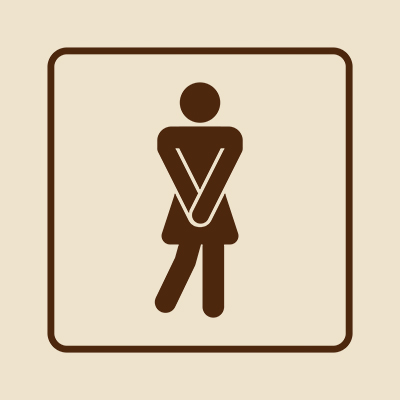
Get rid of bladder infections!
Almost every woman has had a urinary tract infection, and some suffer from it regularly. Find out why we should take this infection seriously, how it develops and what types of treatment are available!

About vitamin B12 deficiency and pain
We all know that B vitamins are very important for our health. But many people don't realise how serious a vitamin B12 deficiency can be! Not just for vegetarians, vegans, pregnant or breastfeeding women, diabetics or even alcohol drinkers!

L-threonine - an essential amino acid with important functions
Amino acids are an important building block for our health. Which ones can the body produce and which ones need to be ingested in order to fulfil all functions? What are the risks for vegans and what are the dangers of a deficiency? Our report answers the most important questions!
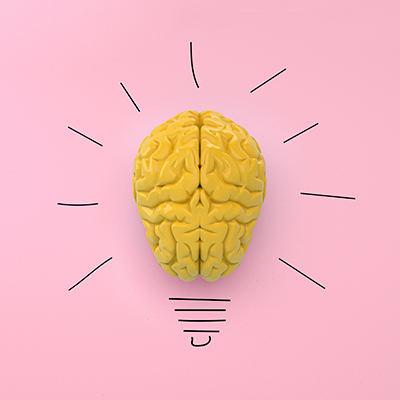
Why NADH is important for the body
They are the basic building blocks of the body: cells. Their job is to absorb nutrients and use their energy for metabolism. An important factor in this process is NADH.

The link between L-Arginine and women's health
The amino acid L-Arginine is primarily associated with muscle growth and improved endurance. Some studies suggest that it may also have a positive effect on women's health.

Zinc deficiency: important facts for your health
Discover the effects of zinc deficiency on your health and how to recognise and treat it. Find out why zinc is an essential trace element for your body and mind, and how to maintain optimal zinc levels. Improve your health with this comprehensive information on zinc deficiency!

Fitter and stronger with L-Carnosine?
Although carnosine can be produced by the human body, it is a popular supplement among athletes - in powder or capsule form. In this article, you can find out what specific effects it has on performance and what other functions it is involved in.

Magnesium: How does it affect the menstrual cycle?
Many women are familiar with them and suffer from them every month: Menstrual cramps. Read more about the processes in your body during your period, discover natural approaches to relieve the pain and find out what role magnesium and other nutrients play in this. Improve your quality of life during your period in a completely natural way!
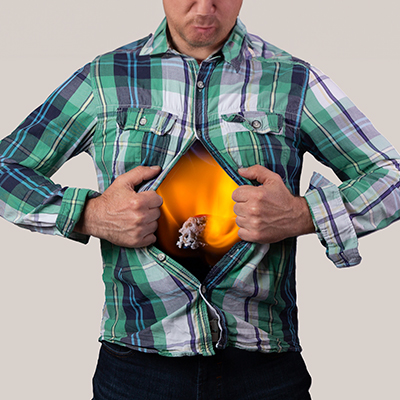
Heartburn - an annoyance and a burden!
Many people suffer from heartburn after a hearty meal. You have a glass of wine or beer, treat yourself to a nice dessert or even a little digestive liqueur - and there it is again: a sharp pain, pressure in the stomach and sometimes even nausea: heartburn!
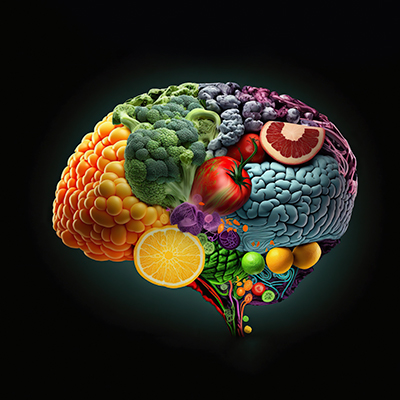
Vitamin B1 deficiency - here too
B vitamins are essential for our bodies! Not only do many metabolic processes depend on them, but so do our nerves. If you think vitamin B1 deficiency is only a problem in developing countries, think again! Find out more here.

Tribulus Terrestris is often promoted for muscle building and libido.
When it comes to muscle building and sexual health, many people prefer Tribulus Terrestris to synthetic products. But what about the real effects of the natural supplement?
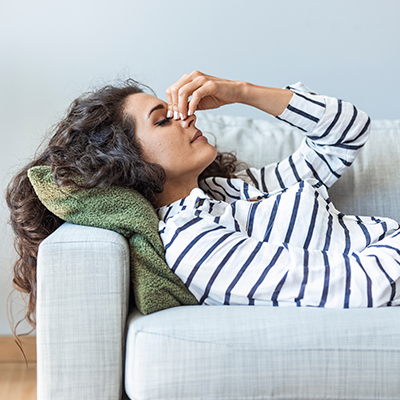
Iron deficiency anaemia
Iron is an essential trace element. But why is it so important for survival and how is it linked to anaemia or even depression? Here we explain the most important consequences of iron deficiency!
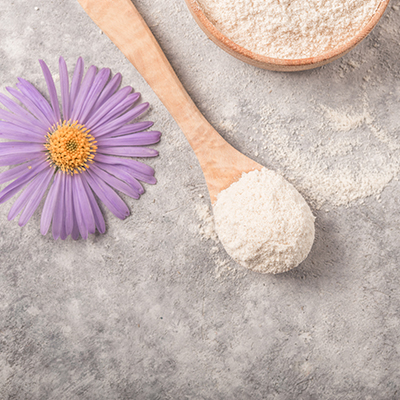
Collagen hydrolysate - what to look out for
Hydrolysed collagen is more easily absorbed by the body than normal collagen. All you need to know about the supplement

Diet for osteoarthritis - how supplements can help
Now there is support for the joints - with a healthy diet and the right supplements.

Irritable bowel syndrome - causes, symptoms and treatment

Acidic foods
What is an acid-base balance? And how can I achieve it? Which foods are metabolised in an acidic way and which in an alkaline way? Our report answers the most important questions on these topics!

SAMe - for more energy and a better mood
Learn how the amino acid S-adenosylmethionine (SAMe) can support your mood, energy levels and liver function.
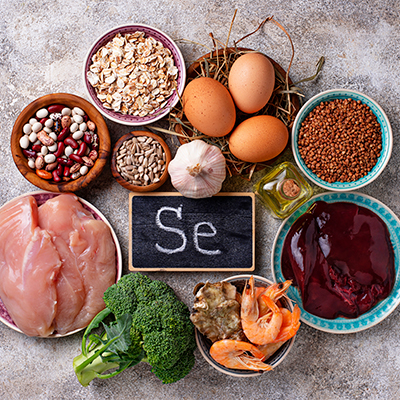
Why the body needs a good supply of selenium
Immune defence, the cardiovascular system and the thyroid - the trace element selenium plays an important role in many bodily functions.
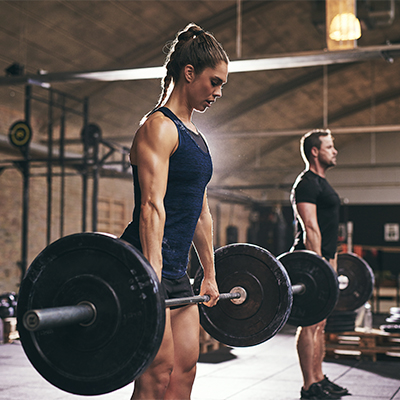
Lose weight with amino acids
We have learned that our muscles use energy. The more muscular the body, the more energy it can use. Find out how amino acids are involved here!

Tryptophan - for wellbeing and sleep

What should people with diabetes not eat?
Everyone talks about sugar, but what does it mean when blood sugar levels become a serious problem? Find out all you need to know about diabetes!

Nattokinase - what is the fibrinolytic protein?
The enzyme nattokinase, derived from the soya bean dish natto, is believed in Japan to be one of the reasons for longevity. Find out more here!

Copper deficiency - causes, symptoms and long-term effects
Copper is essential for our health. Not only does the immune system need this trace element, but many other processes in the body do too. Find out here why a copper deficiency is often discovered too late and what the consequences are!
The menopause - both a curse and a blessing
Sooner or later, every woman will experience the menopause.
It marks the change in the female hormone balance, when the fertile phase ends and a new phase of life begins. However, for most women, this change can cause major discomfort, including sleep disorders and osteoporosis.
Find out more about this topic here and learn about the symptoms and the best way to deal with them.
What is the menopause?
The menopause, medically known as the climacteric, is the female transition phase during which the ovaries cease their reproductive function. After the menopause, a woman can no longer have children. Although this can have a positive effect on the sexuality of affected women, which is why some look forward to this time, the hormonal changes caused by the menopause can also bring with it many negative symptoms, as oestrogen and progesterone levels in the blood drop. [1]
What age does the menopause begin?
The menopause appears individually for each woman. The onset, duration and intensity of symptoms can even vary greatly from woman to woman. Overall, the entire menopause process can last between 10 and 20 years. The menopause is divided into the following phases [1,2]:
Premenopause: Often between the ages of 40 and 50. The first changes and irregularities in the menstrual cycle occur during this phase. Periods become either heavier or lighter, cycles become longer or shorter and bleeding between periods can occur frequently. Many women have no or few other symptoms during this period of hormonal change.
Perimenopause: This is the term used to describe the period around the last menstrual period, i.e. shortly before and after the menopause. During this phase, the production of oestrogen and progesterone fluctuates greatly, so that ovulation and therefore also menstruation become increasingly irregular and ultimately lead to menopause - the cessation of menstruation. The year after the last menstrual period also belongs to this phase, as the time of the menopause can only be determined retrospectively one year after the last menstruation. Menopausal symptoms often become more pronounced during this phase.
Menopause: The period of the last menstrual period. The average age is around 51, although any age between 40 and 55 is considered normal. The menopause is defined as the time when there is no further bleeding for 12 months after this menstruation.
Postmenopause: The period of the menopause from 12 months after the menopause - the last menstrual period. During this phase, the respective hormone levels in the blood reach their lowest point, which can intensify or even change the symptoms.
What symptoms do you have during the menopause?
First of all: Typical symptoms are not transferable to every woman. Some have little or no symptoms during the hormonal change phase, while other women experience very severe symptoms very early on, which then last for several months or many years.
In the perimenopause:
Irregular menstruation can be the first sign of a perimenopause. These often occur more frequently at first, then at longer intervals. Hot flushes are one of the most common symptoms and affect around 75 to 85% of women as they get older. They usually occur before the period stops and can last for many years.
Physical changes such as weight gain and joint pain are often mentioned in connection with the menopause. Inner restlessness and psychological complaints such as irritability, anxiety, nervousness or depression can be exacerbated by the drop in oestrogen levels during this phase. Sleep disturbance due to hot flushes at night can also lead to concentration problems and thus in turn to problems finding words during the menopause. As oestrogen levels fall, the risk of osteoporosis also increases, as this hormone contributes to bone maintenance [2].
In the menopause and postmenopause:
As oestrogen levels fall, the skin loses collagen and elastin, making it thinner, drier and saggier. The vaginal mucosa becomes thinner and drier, which can cause pain during sexual intercourse. The urethra shortens and its mucous membrane also becomes thinner, making this area more susceptible to urinary tract infections (urogenital menopause syndrome). Frequent urge to urinate and even urinary incontinence can also occur. In the first 5 years after the menopause, bone density is greatly reduced due to the drop in oestrogen, which can lead to bone fractures more easily. Cholesterol levels now often show a higher concentration of unhealthy low-density lipoprotein (LDL), which can make cardiovascular diseases such as atherosclerosis more common [2].
Why do hot flushes occur during the menopause?
While the exact cause is not known, it is thought to be a change in the hypothalamus in the brain, which regulates body temperature. Fluctuations in hormone levels may also be the cause. During a hot flush, the blood vessels on the surface of the skin (often in the head and neck area) dilate, making it red and hot. This can make those affected feel so warm that the body reacts by breaking out in a sweat. This phase can last from a few seconds to several minutes and often leads to chills afterwards. Night sweats in particular (hot flushes at night) can have a negative impact on sleep and lead to constant tiredness, irritability and mood swings [2].
What helps with menopausal symptoms?
If the symptoms of the menopause cause a great deal of stress, it is possible to treat them with hormone therapy. Although this can ease the hormonal change, hormone therapy also harbours the risk of supporting other illnesses [2,3].
It is essential to consult a doctor before starting such treatment, especially in women with an increased risk of cardiovascular disease, strokes, blood clots and dementia [2]. Alternative measures against hot flushes can include light clothing, fans and cooling compresses. Spicy food or alcohol promote the development of heat. Routines, avoiding stress, relaxation exercises and yoga can help against sleep disorders and inner restlessness.
Due to the possible side effects of hormone therapies, many women are interested in herbal remedies such as yams and soya. In hormone replacement therapy, these products are referred to as bioidentical hormones, as they have almost the same molecular structure as those produced by the female body [2].
Which hormones to use during the menopause?
In hormone therapy for typical symptoms associated with the menopause, such as night sweats, sleep disorders and mood swings, oestrogen and progestogens are usually used to reduce symptoms [2]. In the postmenopausal phase, treatment is often helpful not only to alleviate menopausal symptoms, but also to counteract osteoporosis. This risk can arise particularly in the period after the last menstrual period, as the lack of the hormone oestrogen means that bone maintenance can no longer be supported.
Which type of hormone therapy or hormone replacement therapy is appropriate in each individual case must be determined by a doctor in order to alleviate the respective symptoms, but also to minimise or even avert the risk of side effects and other diseases.
The type of treatment can be carried out in different ways: It is possible to take the hormones oestrogen and progestogen orally as tablets, as skin patches or lotions via the skin or vaginally via creams, suppositories and other variants.
With a good medical assessment, women in the phase of hormonal changes can usually be helped well, so that not only symptoms such as sweating, sleep disorders and mood swings can be alleviated, but above all the risk of serious illnesses can be minimised.
Finally, we also have good news:
Contraception, unwanted pregnancy and menstrual problems are no longer an issue after the menopause. There is a likelihood of improved quality of life for women with endometriosis or previously severe symptoms during their periods. Migraines can also disappear after the menopause [4].
Read our articles on the topics:
- Omega 3 for skin, heart and brain
- Reishi Vital Mushroom with Tradition
- Bones and cardiovascular system
- Bladder inflammation – what can help me?
Sources
[1] https://www.frau-gesundheit.de/wechseljahre-erklaert-wechseljahre
[2] https://www.msdmanuals.com/de-de/heim/gesundheitsprobleme-von-frauen/wechseljahre/wechseljahre
[3] https://www.thieme-connect.de/products/ejournals/abstract/10.1055/s-0034-1384624
[4] https://www.gesundheitsinformation.de/wechseljahrsbeschwerden.html
